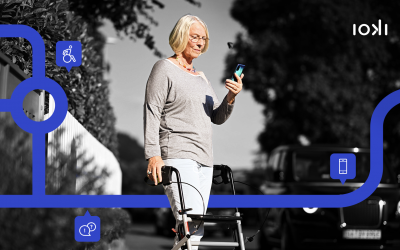In view of the trend of more and more people moving to metropolises and cities, the lack of space and overcrowding are increasing dramatically in many places. This is changing the mobility behaviour of residents in urban regions and the need for innovative mobility services is growing. Many people depend on the expansion of these services in order to be able to get around easily and reliably in their hectic everyday lives, even without a car. The new mobility services also have a major impact in rural regions. People who live in areas with limited access to public transport will be able to live without a private car thanks to flexible public mobility tailored to their needs. This means that older people or people without a driving licence can also be mobile at all times. The development of efficient, digital and demand-responsive services is therefore becoming increasingly important.
The fundamental advantages of New Mobility are the expansion of resource-friendly transport infrastructures and the increased range of flexible mobility and sharing services for the population. In addition, the general digital networking will be improved, thereby contributing to modernisation. This promotes traffic relief in cities and reduces the negative impact of car traffic on society. New and smart mobility concepts are therefore an important driver of the mobility transition.



